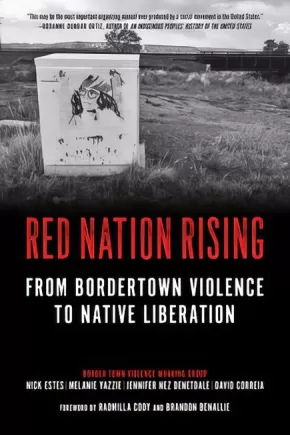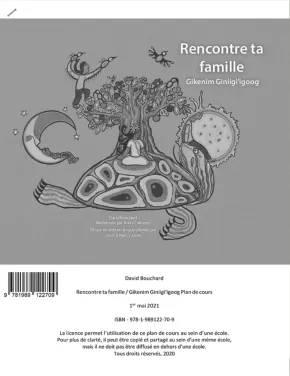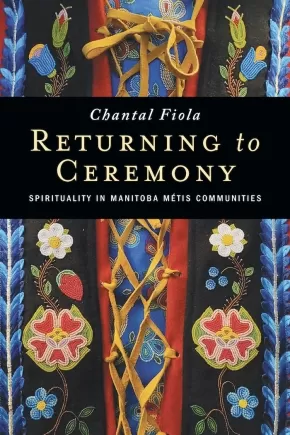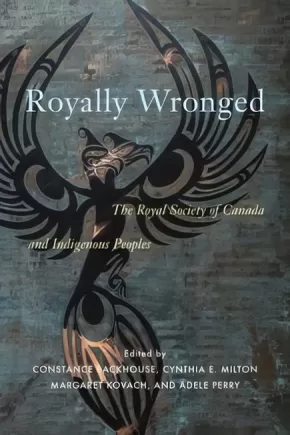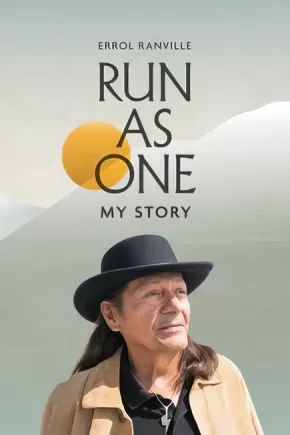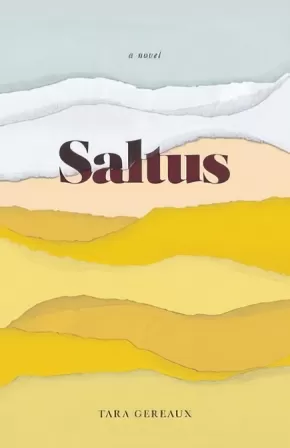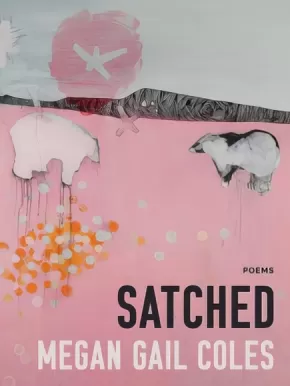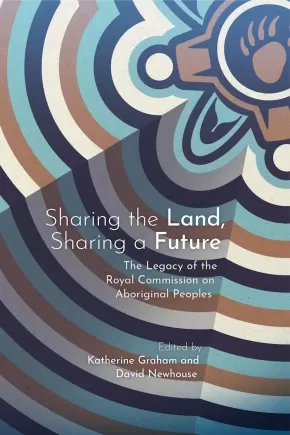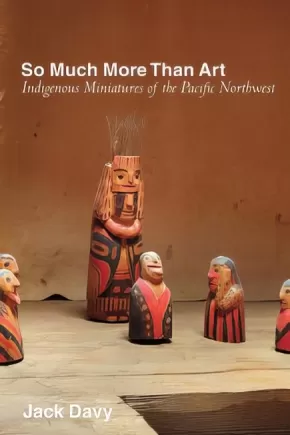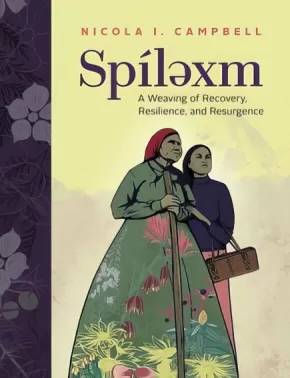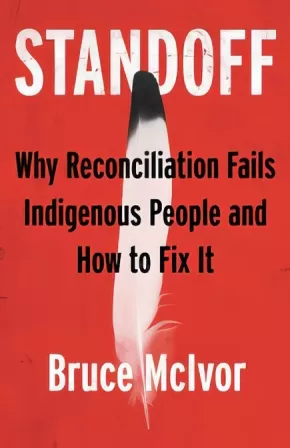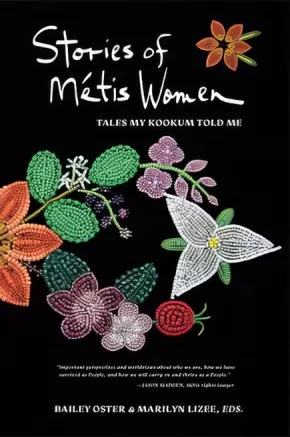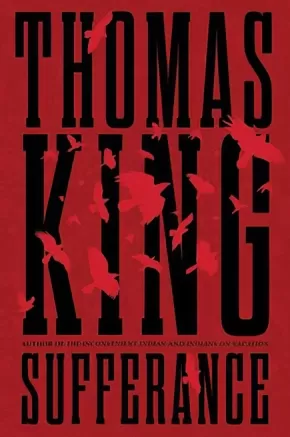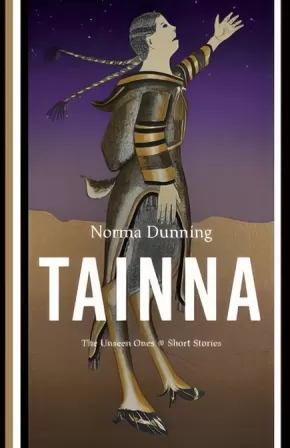
Indigenous Peoples
706
-
720
of
1343 Results;
Sort By
Go To
of 90
Red Nation Rising: From Bordertown Violence to Native Liberation
$25.50
Format:
Paperback
Text Content Territories:
Indigenous American; Native American;
Grade Levels: Preschool;
ISBN / Barcode: 9781629638317
Synopsis:
Synopsis:
Red Nation Rising is the first book ever to investigate and explain the violent dynamics of bordertowns. Bordertowns are white-dominated towns and cities that operate according to the same political and spatial logics as all other American towns and cities. The difference is that these settlements get their name from their location at the borders of current-day reservation boundaries, which separate the territory of sovereign Native nations from lands claimed by the United States.
Bordertowns came into existence when the first US military forts and trading posts were strategically placed along expanding imperial frontiers to extinguish indigenous resistance and incorporate captured indigenous territories into the burgeoning nation-state. To this day, the US settler state continues to wage violence on Native life and land in these spaces out of desperation to eliminate the threat of Native presence and complete its vision of national consolidation “from sea to shining sea.” This explains why some of the most important Native-led rebellions in US history originated in bordertowns and why they are zones of ongoing confrontation between Native nations and their colonial occupier, the United States.
Despite this rich and important history of political and material struggle, little has been written about bordertowns. Red Nation Rising marks the first effort to tell these entangled histories and inspire a new generation of Native freedom fighters to return to bordertowns as key front lines in the long struggle for Native liberation from US colonial control. This book is a manual for navigating the extreme violence that Native people experience in reservation bordertowns and a manifesto for indigenous liberation that builds on long traditions of Native resistance to bordertown violence.
Reviews
“The authors of this brilliant exposition on bordertown violence are no ordinary academics, although academia would benefit from having more faculty scholars such as these. They are also master organizers, a part of a network of indigenous and other community organizers in Indian Country fueling the process of decolonization of Native lands and communities. Bordertown violence is as old as US colonization of the continent itself, and it persists today in the towns and cities that border Native reservations and communities all over US-claimed territory and is replicated in even more distant cities that have large Native populations, many of whom are homeless. This may be the most important organizing manual ever produced by a social movement in the United States.”—Roxanne Dunbar-Ortiz, author of An Indigenous Peoples’ History of the United States
“The borders racking our world are in constant motion and, like the explosive grinding of tectonic plates, the violence of this movement and resistance to it emerges most sharply at the edges. This essential volume brings together militant intellectuals to provide an accessible introduction to the violent encirclement of indigenous communities, and to provide crucial concept-weapons to deepen ongoing collective resistance.” —George Ciccariello-Maher, author of Decolonizing Dialectics
“A remarkable body of work that effectively weaves long overdue native scholarship and historical analysis of settler colonialism with direct and timely frontline reports on the continuing bordertown wars and conflicts in occupied native territories. Offers a comprehensive framework for advancing present and future indigenous resistance and liberation struggles.”—John Redhouse (Diné)
Additional Information
176 pages | 6.00" x 9.00" | Paperback
Rencontre ta famille plan de cours (LP)
$7.99
Artists:
Format:
Paperback
Text Content Territories:
Indigenous Canadian; First Nations; Anishinaabeg; Ojibway;
ISBN / Barcode: 9781989122709
Synopsis:
Synopsis:
This Teacher Lesson Plan accompanies the book Rencontre ta famille. Includes comprehension questions, group activities, wordsearch, colouring pages etc. Mother Earth, we come from her, we go to her, without her we wouldn't be here, she gives all of us life and because of her we are all one family. In many segments of Indigenous life we speak of Mother Earth, Father Sky, Grandfather Sun, and Grandmother Moon. Meet Your Family is a rhythmic poem that will enlighten readers on how to view these important figures and share a greater concept of seeing the world as our natural family.
Rencontre ta famille is presented in both French and Ojibway. An additional softcover book written in Ojibway with a phonetics guide is included inside this hardcover book.
Educator Information
This is the teacher lesson plan for Rencontre ta famille.
This teacher lesson plan is also available in English: Meet Your Family Teacher Lesson Plan
Additional Information
12 pages | 8.50" x 11.00"
Returning to Ceremony: Spirituality in Manitoba Métis Communities
$27.95
Format:
Paperback
Text Content Territories:
Indigenous Canadian; Métis;
Grade Levels: University/College;
ISBN / Barcode: 9780887559624
Synopsis:
Synopsis:
Returning to Ceremony is the follow-up to Chantal Fiola’s award-winning Rekindling the Sacred Fire and continues her ground-breaking examination of Métis spirituality, debunking stereotypes such as “all Métis people are Catholic,” and “Métis people do not go to ceremonies.” Fiola finds that, among the Métis, spirituality exists on a continuum of Indigenous and Christian traditions, and that Métis spirituality includes ceremonies. For some Métis, it is a historical continuation of the relationships their ancestral communities have had with ceremonies since time immemorial, and for others, it is a homecoming—a return to ceremony after some time away.
Fiola employs a Métis-specific and community-centred methodology to gather evidence from archives, priests’ correspondence, oral history, storytelling, and literature. With assistance from six Métis community researchers, Fiola listened to stories and experiences shared by thirty-two Métis from six Manitoba Métis communities that are at the heart of this book. They offer insight into their families’ relationships with land, community, culture, and religion, including factors that inhibit or nurture connection to ceremonies such as sweat lodge, Sundance, and the Midewiwin. Valuable profiles emerge for six historic Red River Métis communities (Duck Bay, Camperville, St Laurent, St François-Xavier, Ste Anne, and Lorette), providing a clearer understanding of identity, culture, and spirituality that uphold Métis Nation sovereignty.
Reviews
"Grounded in the communities of her home territory, Chantal Fiola brings critical insider knowledge, insight and analysis to the topic of Metis spirituality. The combination of historical background with contemporary voice offers an understanding of the Metis spirit that will nurture the nation and enlighten the broader public." — Kim Anderson
“Returning to Ceremony is a courageous book given the tensions surrounding religious affiliation in the Metis community. It is a challenging topic that has been dealt with sensitively, with balance and candour."— Blair Stonechild
Educator Information
Table of Contents
Ch 1: Métis Spirituality: Confronting Stereotypes
Ch 2: Searching for Our Stories in Oral History
Ch 3: Combing the Written Record for Our Stories
Ch 4: A Métis-Centred Study and Approach
Ch 5: Six Red River Métis Communities
Ch 6: Meeting the Participants
Ch 7: Métis Family Relationships with Land, Language, and Identity
Ch 8: Métis Family Relationships with Culture and Religion
Ch 9: Exploring Self-Identification
Ch 10: Spirituality, Types of Ceremonies, and Disconnection Factors
Ch 11: Connection Factors, Impacts upon Identity, and Others’ Reactions
Ch 12: Métis Spirituality Today
Additional Information
272 pages | 6.00" x 9.00" | Index, Bibliography | Paperback
Royally Wronged: The Royal Society of Canada and Indigenous Peoples
$39.95
Editors:
Format:
Paperback
Text Content Territories:
Indigenous Canadian;
Grade Levels: University/College;
ISBN / Barcode: 9780228009030
Synopsis:
Synopsis:
Probing Royal Society of Canada scholars’ complicity in the marginalization of Indigenous knowledge and the destruction of Indigenous communities.
The Royal Society of Canada’s mandate is to elect to its membership leading scholars in the arts, humanities, social sciences, and sciences, lending its seal of excellence to those who advance artistic and intellectual knowledge in Canada. Duncan Campbell Scott, one of the architects of the Indian residential school system in Canada, served as the society’s president and dominated its activities; many other members – historically overwhelmingly white men – helped shape knowledge systems rooted in colonialism that have proven catastrophic for Indigenous communities.
Written primarily by current Royal Society of Canada members, these essays explore the historical contribution of the RSC and of Canadian scholars to the production of ideas and policies that shored up white settler privilege, underpinning the disastrous interaction between Indigenous peoples and white settlers. Historical essays focus on the period from the RSC’s founding in 1882 to the mid-twentieth century; later chapters bring the discussion to the present, documenting the first steps taken to change damaging patterns and challenging the society and Canadian scholars to make substantial strides toward a better future.
The highly educated in Canadian society were not just bystanders: they deployed their knowledge and skills to abet colonialism. This volume dives deep into the RSC’s history to learn why academia has more often been an aid to colonialism than a force against it. Royally Wronged poses difficult questions about what is required – for individual academics, fields of study, and the RSC – to move meaningfully toward reconciliation.
Reviews
"This valuable and timely collection should spark reflection and conversation both within and beyond the Royal Society of Canada. Royally Wronged helps unravel the lingering legacies of colonialism in the ‘knowledge' we have produced." - Sarah Carter, University of Alberta and author of Lost Harvests: Prairie Indian Reserve Farmers and Government Policy
Additional Information
336 pages | 6.00" x 9.00" | 20 Photos | Paperback
Run As One: My Story
$24.95
Format:
Paperback
Text Content Territories:
Indigenous Canadian;
Reading Level: N/A
ISBN / Barcode: 9781773370606
Synopsis:
Synopsis:
Errol Ranville has been running all his life: from chronic poverty and racism in rural Manitoba; a discriminatory music business; alcohol and drug addiction; and the responsibilities that come with being regarded as a role model. Though Errol has faced seemingly insurmountable barriers as an Indigenous performer in a predominately white music business, his band C-Weed & the Weeds released several #1 songs and went on to score JUNO nominations in 1985 and 1986. He was the recipient of the Lifetime Achievement Award at the Indigenous Music Awards in 2011. In his memoir Run as One, Errol embraces the role of trailblazer for the countless musicians that follow his path.
Reviews
"This is the story of how C-Weed became a legendary name in Indigenous music. Run As One traces the perseverance, heartbreak and inspiration that led Errol Ranville from extreme hardship to singing the soundtrack of so many of our lives." - Wab Kinew, author of The Reason You Walk
Additional Information
160 pages | 6.18" x 8.91"
Saltus
$22.95
Format:
Paperback
Text Content Territories:
Indigenous Canadian; Métis;
Reading Level: N/A
ISBN / Barcode: 9780889714007
Synopsis:
Synopsis:
Evocative of Miriam Toews’ A Complicated Kindness and Diane Warren’s Cool Water, Tara Gereaux’s novel, set in small-town Saskatchewan, dissects themes of Métis identity, female identity and motherhood, aging and regret, and finally, acceptance.
Nothing ever seems to happen in the small town of Saltus. At the Harvest Gold Inn and Restaurant off Highway 53, two waitresses spend their evening shifts delivering Salisbury steak specials and slices of pie to the regulars. But everything changes when Nadine, a headstrong single mother, and her teenager, Aaron, arrive at the Gold, where Aaron—who has repeatedly been denied appropriate gender-affirming medical care from the mainstream system—undergoes a near-fatal procedure performed by an unqualified and eccentric recluse who lives on the outskirts of Saltus.
The events that transpire that evening force each townsperson to look long and hard at themselves, at their own identities, and at the traumas and experiences that have shaped them. Told from multiple perspectives, Saltus reveals the complexities inherent in accepting the identities of loved ones, and the tragic consequences that unfold if they are ignored. It is a story about relationships with others, and, even more importantly, with ourselves.
Reviews
"Calm, measured and fearless, Gereaux skillfully, and with compassion, depicts a community in the aftermath of trauma. Based on true events, this work of fiction is both haunting and human. Gereaux’s strength is in her characters—you can’t help but feel their torments as if they were your own." — Lisa Bird-Wilson, February 2021
Additional Information
304 pages | 5.50" x 8.50" | Paperback
Satched
$19.99
Format:
Paperback
Text Content Territories:
Indigenous Canadian; First Nations; Mi'kmaq;
ISBN / Barcode: 9781487008949
Synopsis:
Synopsis:
Named after a local word meaning “soaked through” or “weighed down,” Scotiabank Giller Prize finalist Megan Gail Coles’s debut poetry collection, Satched, is a vivid portrait of intergenerational trauma, ecological grief, and late-stage capitalism from the perspective of a woman of rural-remote, Northern, working class, mixed ancestry.
Honest, penetrating, and often darkly comic, these poems explore the extraordinary will it requires to stay alive in the face of economic precariousness, growing inequality, and prevailing dissatisfaction. With a fierce dedication to place, the collection explores the conflict inherent to individualistic priorities and collective needs present in a hyper-commodified Newfoundland and Labrador. Satched demands compassionate advocacy for all as it resolutely strives for clarity and acceptance while celebrating the momentary glimpses of joy in the path toward shared values and resilience.
Reviews
“This collection trills of the [Newfoundland] region and its distinct speech … Coles creates an intimacy in Satched through her urban maritime lens and straightforward style.” — Quill & Quire
“Reading Satched is like drinking chilled wine with an old friend on a hot night, commiserating with love, gratitude, and mutual affection. It’s opening a second bottle, letting the kids fall asleep watching movies, and getting out the hidden cigarettes to really get into it. It’s a fist in the air before it’s aimed at an appropriate eyeball. It’s an exceptional accomplishment full of lyrical strength and poetic endurance.” — Katherena Vermette, author of river woman
“Are you ready for poems that pierce straight to the bone? Megan Gail Coles’s Satched is a razor edge of fierce truth, grim humour, and unalloyed beauty. With sharp-eyed clarity and fearless candour, Coles slices open the veils of capitalism and colonization to reveal a landscape marked by poverty and resilience, violence, and hope. This is Newfoundland and Labrador seen through the eyes of unconditional love and furious rage. The political, the personal, and the poetic interweave seamlessly in this debut collection, adding another genre to Coles’s already impressive repertoire. Satched is the kind of book we need right now, the kind that confronts the real world head-on while also teaching us how to live in it.” — Kai Cheng Thom, author of a place called No Homeland
“Satched is an acerbic, bold, and wise debut that susses out the subtle and sinister ways men infringe on women’s mental and physical spaces, the horrors of the climate crisis, and the pitfalls of economic precarity. With technical mastery and an immediately infectious tone, Coles inhabits the voices of Atlantic Canada, unearths the ways grief inhabits a place, and interrogates prevailing notions of resiliency. Coles intimates both how ‘our minds are poisoned against ourselves’ and the ways in which kinship offers a path to forge through the audaciousness of capital and insidiousness of colonialism. Reading Satched is like talking to your smartest, funniest friend, who wryly declares, ‘there is nothing and no one standing in your way, / except capitalism and global pandemics.’” — Cassidy McFadzean, author of Drolleries
“These poems tumble into me with a rage and beauty that is oceanic. I am satched to the core. Megan Gail Coles writes poems that ask us to reconsider historical and contemporary attitudes toward poverty, race, gender, and the environment, engaging her reader in ‘this present rowing over the past / to make up the future.’ Because while these poems speak deeply to intergenerational trauma, solastalgia, and the systemic ills of capitalism hidden in plain sight, they are forward-looking at heart. Satched puts forth that despite (or perhaps because of) our human frailties, we can begin again. These poems demonstrate that repair is possible, even from a rusty scaffold, if we are willing to reach beyond ourselves.” — Clea Roberts, author of Auguries
Additional Information
112 pages | 6.00" x 8.00" | Paperback
Sharing the Land, Sharing a Future: The Legacy of the Royal Commission on Aboriginal Peoples
$31.95
Editors:
Format:
Paperback
Text Content Territories:
Indigenous Canadian; First Nations; Inuit; Métis;
Grade Levels: University/College;
ISBN / Barcode: 9780887558689
Synopsis:
Synopsis:
Sharing the Land, Sharing a Future looks to both the past and the future as it examines the foundational work of the Royal Commission on Aboriginal Peoples (RCAP) and the legacy of its 1996 report. It assesses the Commission’s influence on subsequent milestones in Indigenous-Canada relations and considers our prospects for a constructive future.
RCAP’s five-year examination of the relationships of First Nations, Metis, and Inuit peoples to Canada and to non-Indigenous Canadians resulted in a new vision for Canada and provided 440 specific recommendations, many of which informed the subsequent work of the Truth and Reconciliation Commission of Canada (TRC). Considered too radical and difficult to implement, RCAP’s recommendations were largely ignored, but the TRC reiterates that longstanding inequalities and imbalances in Canada’s relationship with Indigenous peoples remain and quite literally calls us to action.
With reflections on RCAP’s legacy by its co-chairs, leaders of national Indigenous organizations and the Minister of Indigenous Crown Relations, and leading academics and activists, this collection refocuses our attention on the groundbreaking work already performed by RCAP. Organized thematically, it explores avenues by which we may establish a new relationship, build healthy and powerful communities, engage citizens, and move to action.
Reviews
"Sharing the Land, Sharing a Future provides a critical assessment of the limited progress made in implementing RCAP’s recommendations and consideration of the actions needed to move forward with the TRC’s Calls for Action – that might be a second chance to truly decolonize the situation of Indigenous peoples with homelands in the Canadian territory.” — Peter Russell
“In the current political landscape Sharing the Land, Sharing a Future is an important and necessary work that brings a wealth of scholarship into conversation with post RCAP and TRC realities. By centering the vision of RCAP and asserting decolonial pathways toward Indigenous sovereignty, it will trouble the notion of reconciliation and what that really means in a settler colonial state.” — Jennifer Brant
Educator Information
Other contributors: Marlene Brant Castellano, Frederic Wien, Frances Abele, Erin Alexiuk, Satsan (Herb George), Catherine MacQuarrie, Yvonne Boyer, Josée Lavoie, Derek Kornelson, Jeff Reading, René Dussault, Georges Erasmus, Perry Bellegarde, Natan Obed, Clément Chartier, Robert Bertrand, Carolyn Bennett, Francyne Joe, Jo-ann Archibald (Q’um Q’um Xiiem) Jan Hare, Jennifer S. Dockstator, Jeff S. Denis, Gérard Duhaime, Mark S. Dockstator, Wanda Wuttunee, Charlotte Loppie, John Loxley, Warren Weir, Caroline L. Tait, Devon Napope, Amy Bombay, William Mussell, Carrie Bourassa, Eric Oleson, Sibyl Diver, Janet McElhaney, Cindy Blackstock, Jonathan Dewar, Lynne Davis, Chris Hiller, Aaron Franks, Daniel Salée, Carole Lévesque, Michael Adams
Table of Contents
Chapter 1: Completing Confederation: The Necessary Foundation
Chapter 2: Twenty Years Later: The RCAP Legacy in Indigenous Health System Governance—What about the Next Twenty?
Chapter 3: Address by René Dussault, Co-Chair, Royal Commission on Aboriginal Peoples
Chapter 4: Video Address by Georges Erasmus, Co-Chair, Royal Commission on Aboriginal Peoples
Chapter 5: Address by Perry Bellegarde, National Chief, Assembly of First Nations
Chapter 6: Address by Natan Obed, President, Inuit Tapiriit Kanatami
Chapter 7: Address by Clément Chartier, President, Metis National Council
Chapter 8: Address by Robert Bertrand, National Chief, Congress of Aboriginal Peoples
Chapter 9: Address by Francyne Joe, President, Native Women’s Association of Canada
Chapter 10: Address by Carolyn Bennett, Minister of Indigenous and Northern Affairs Canada
Chapter 11: Thunderbird Is Rising: Indigenizing Education in Canada
Chapter 12: Insights into Community Development in First Nations: A Poverty Action Research
Chapter 13: Indigenous Economic Development with Tenacity
Chapter 14: Powerful Communities, Healthy Communities: A Twenty-Five Year Journey of Healing and Wellness
Chapter 15: Cultural Safety
Chapter 16: What Will It Take? Ending the Canadian Government’s Chronic Failure to Do Better for First Nations Children and Families
Chapter 17: The Art of Healing and Reconciliation: From Time Immemorial through RCAP, the TRC, and Beyond
Chapter 18: Engaging Citizens in Indigenous-Non-Indigenous Relations
Chapter 19: SSHRC and the Conscientious Community: Reflecting and Acting on Indigenous Research and Reconciliation in Response to CTA
Chapter 20: Canada’s Aboriginal Policy and the Politics of Ambivalence: A Policy Tools Perspective
Chapter 21: Executive Summary, Canadian Public Opinion on Aboriginal Peoples
Conclusion: What’s the Way Forward?
Additional Information
504 pages | 6.00" x 9.00"
sînapân kîskasâkâs: A Guide to Making Contemporary-Style Métis Ribbon Skirts
$24.95
Format:
Paperback
Text Content Territories:
Indigenous Canadian; Métis;
ISBN / Barcode: 9781926795966
Synopsis:
Synopsis:
sînapân kîskasâkâs: A Guide to Making Contemporary-Style Métis Ribbon Skirts will assist you in the creation of your own Métis style ribbon skirt. Authors, Bonny Johnson and Leah Marie Dorion guide you through the process with detailed instructions which are accompanied by photographs of each step. This resource comes with a companion DVD, and introductions from both authors on the historical and contemporary uses of these traditional Métis style ribbon skirts.
Educator Information
Grade Level: Secondary, Post Secondary, Adult
So Much More Than Art: Indigenous Miniatures of the Pacific Northwest
$89.95
Format:
Hardcover
Text Content Territories:
Indigenous Canadian;
ISBN / Barcode: 9780774866552
Synopsis:
Synopsis:
Miniature canoes, houses and totems, and human figurines have been produced on the Northwest Coast since at least the sixteenth century. What motivates Indigenous artists to produce these tiny artworks? Are they curios, toys, art, or something else?
So Much More Than Art is an original exploration of this intricate cultural pursuit. Through case studies and conversations with contemporary Indigenous artists, Jack Davy uncovers the ways in which miniaturization has functioned as a subtle form of communication and, since contact, resistance in the face of aggressive colonization. His interviewees dismiss the persistent assertion running through studies of material culture that miniatures were no more than toys for children or souvenir trinkets. They are in fact crucial components of satirical opposition to colonial government, preservation of traditional techniques, and political and legal negotiation.
This nuanced study of a hitherto misunderstood practice convincingly demonstrates the importance of miniaturization as a technique for communicating complex cultural ideas between generations and communities, and across the divide that separates Indigenous and settler societies. So Much More Than Art is also a testament to the resilience of the Indigenous peoples of the Northwest Coast.
Students and scholars of anthropology, museum studies, Indigenous studies, and art history will find this work a valuable addition to their libraries, as will museum, arts, and heritage professionals.
Reviews
"So Much More Than Art goes beyond other studies by demonstrating how Northwest Coast Indigenous artists use and have used miniaturization not only as an artistic practice but in provoking interventions in social relations and as a strategy of communication and resistance in the face of colonialism." — Karen Duffek, curator, Contemporary Visual Arts and Pacific Northwest, Museum of Anthropology at UBC
"Drawing heavily on the knowledge and opinions of Indigenous experts from communities all along the coast, Jack Davy invites us to think more critically about Northwest Coast miniatures, and leaves us with a framework with which to do so." — Kaitlin McCormick, curator, Western Ethnology, Canadian Museum of History
Educator Information
Table of Contents
Introduction
1 Practice and Play: The Makah
2 The Haida String: Northern Peoples
3 Tiny Dancers and Idiot Sticks: The Kwakwaka’wakw
4 Small Foundations: Tulalip Tribes
5 An Elemental Theory of Miniaturization
6 Analysis of Technique and Status
7 Miniature Realities
Notes; References; Index
Additional Information
224 pages | 6.00" x 9.00" | 21 Photographys, 7 Tables, 2 Charts/Diagrams | Hardcover
Spílexm: A Weaving of Recovery, Resilience, and Resurgence
$32.00
Format:
Hardcover
Text Content Territories:
Indigenous Canadian; First Nations; Salish; Interior Salish; Nlaka'pamux (Thompson); Syilx (Okanagan); Métis;
Grade Levels: 12; University/College;
ISBN / Barcode: 9781553799351
Synopsis:
Synopsis:
In this extraordinary memoir, best-selling author Nicola I. Campbell deftly weaves rich poetry and vivid prose into a story basket of memories orating what it means to be an intergenerational survivor of Indian Residential Schools.
If the hurt and grief we carry is a woven blanket, it is time to weave ourselves anew. We can’t quit. Instead, we must untangle ourselves from the negative forces that have impacted our existence as Indigenous people.
Similar to the “moccasin telegraph,” Spíləxm are the remembered stories, also “events or news” in the Nłeʔkepmx language. These stories were often shared over tea, in the quiet hours between Elders. Rooted within the British Columbia landscape, and with an almost tactile representation of being on the land and water, Spíləxm explores resilience, reconnection, and narrative memory through stories.
Captivating and deeply moving, this exceptional memoir tells of one Indigenous woman’s journey of overcoming adversity and colonial trauma to find strength and resilience through creative works and traditional perspectives of healing, transformation, and resurgence.
Reviews
"This is a terrific tale, peppered with some lovely poetry and deep philosophical convictions: raise your arms in strength and humility. The Nations of British Columbia practise this every day. We commit to strength and humility. We are humble before Star Nations and strong for one another. Nicola Campbell gets this. She is descended from two distinct Indigenous peoples: those that hold their arms and those that serve one another. Nicola braids these two cultures together and bequeaths the result to all of us and to the world. Loaded with history, rich in story, and lovely in its poetics." — Si’Yam, Lee Maracle, author
Additional Information
304 pages | 6.50" x 8.50" | Hardcover
Standoff: Why Reconciliation Fails Indigenous People and How to Fix It
$21.95
Format:
Paperback
Text Content Territories:
Indigenous Canadian;
Grade Levels: University/College;
ISBN / Barcode: 9780889714205
Synopsis:
Synopsis:
Faced with a constant stream of news reports of standoffs and confrontations, Canada’s “reconciliation project” has obviously gone off the rails. In this series of concise and thoughtful essays, lawyer and historian Bruce McIvor explains why reconciliation with Indigenous peoples is failing and what needs to be done to fix it.
Widely known as a passionate advocate for Indigenous rights, McIvor reports from the front lines of legal and political disputes that have gripped the nation. From Wet’suwet’en opposition to a pipeline in northern British Columbia, to Mi’kmaw exercising their fishing rights in Nova Scotia, McIvor has been actively involved in advising First Nation clients, fielding industry and non-Indigenous opposition to true reconciliation, and explaining to government officials why their policies are failing.
McIvor’s essays are honest and heartfelt. In clear, plain language he explains the historical and social forces that underpin the development of Indigenous law, criticizes the current legal shortcomings and charts a practical, principled way forward.
By weaving in personal stories of growing up Métis on the fringes of the Peguis First Nation in Manitoba and representing First Nations in court and negotiations, McIvor brings to life the human side of the law and politics surrounding Indigenous peoples’ ongoing struggle for fairness and justice. His writing covers many of the most important issues that have become part of a national dialogue, including systemic racism, treaty rights, violence against Indigenous people, Métis identity, the United Nations Declaration on the Rights of Indigenous People (UNDRIP) and the duty to consult.
McIvor’s message is consistent and powerful: if Canadians are brave enough to confront the reality of the country’s colonialist past and present and insist that politicians replace empty promises with concrete, meaningful change, there is a realistic path forward based on respect, recognition and the implementation of Indigenous rights.
Additional Information
208 pages | 5.50" x 8.50" | Paperback
Stories of Metis Women: Tales My Kookum Told Me
$35.00
Editors:
Format:
Paperback
Text Content Territories:
Indigenous Canadian; Métis;
Reading Level: N/A
ISBN / Barcode: 9781988824215
Synopsis:
Synopsis:
This book, and accompanying Vimeo documentary link, is a collection of stories about culture, history, and nationhood as told by Métis women. The Métis are known by many names — Otipemisiwak, “the people who own ourselves;” Bois Brules, “Burnt Wood;” Apeetogosan, “half brother” by the Cree; “half-breed,” historically; and are also known as “rebels” and “traitors to Canada.” They are also known as the “Forgotten People.” Few really know their story.
Many people may also think that Métis simply means “mixed,” but it does not. They are a people with a unique and proud history and Nation. In this era of reconciliation, Stories of Métis Women explains the story of the Métis Nation from their own perspective. The UN has declared this “The Decade of Indigenous Languages” and Stories of Métis Women is one of the few books available in English and Michif, which is an endangered language.
Reviews
"With this book, some of these important and unique perspectives and worldviews about who we are as a people, how we have survived as people and how we will carry on and thrive as a people are shared through the writings of the daughters, mothers, aunties and grandmothers of the Métis Nation. I congratulate the Métis women who have taken the time to share and write down some of this knowledge for generations to come." —Jason Madden, Métis rights lawyer and citizen of the Métis Nation
Additional Information
240 pages | 6.00" x 9.00" | 50 black and white illustrations | Paperback
Sufferance: A Novel (HC) (2 in Stock)
$32.00
Format:
Hardcover
Text Content Territories:
Indigenous Canadian;
ISBN / Barcode: 9781443463102
Synopsis:
Synopsis:
Jeremiah Camp, a.k.a. the Forecaster, can look into the heart of humanity and see the patterns that create opportunities and profits for the rich and powerful. Problem is, Camp has looked one too many times, has seen what he hadn’t expected to see and has come away from the abyss with no hope for himself or for the future.
So Jeremiah does what any intelligent, sensitive person would do. He runs away. Goes into hiding in a small town, at an old residential school on an even smaller Indian reserve, with no phone, no Internet, no television. With the windows shut, the door locked, the mailbox removed to discourage any connection with the world, he feels safe at last. Except nobody told the locals that they were to leave Jeremiah alone.
And then his past comes calling. Ash Locken, head of the Locken Group, the multinational consortium that Jeremiah has fled, arrives on his doorstep with a simple proposition. She wants our hero to formulate one more forecast, and she’s not about to take no for an answer. Before he left the Locken empire, Jeremiah had created a list of twelve names, every one a billionaire. The problem is, the people on the list are dying at an alarming and unnatural rate. And Ash Locken wants to know why.
A sly and satirical look at the fractures in modern existence, Sufferance is a bold and provocative novel about the social and political consequences of the inequality created by privilege and power—and what we might do about it.
Additional Information
320 pages | 6.00" x 9.00"
Tainna: The Unseen Ones, Short Stories
$19.95
Format:
Paperback
Text Content Territories:
Indigenous Canadian; Inuit;
ISBN / Barcode: 9781771622714
Synopsis:
Synopsis:
Drawing on both lived experience and cultural memory, Norma Dunning brings together six powerful new short stories centred on modern-day Inuk characters in Tainna. Ranging from homeless to extravagantly wealthy, from spiritual to jaded, young to elderly, and even from alive to deceased, Dunning’s characters are united by shared feelings of alienation, displacement and loneliness resulting from their experiences in southern Canada.
In Tainna—meaning “the unseen ones” and pronounced Da‑e‑nn‑a—a fraught reunion between sisters Sila and Amak ends in an uneasy understanding. From the spirit realm, Chevy Bass watches over his imperilled grandson, Kunak. And in the title story, the broken-hearted Bunny wanders onto a golf course on a freezing night, when a flock of geese stand vigil until her body is discovered by a kind stranger.
Norma Dunning’s masterful storytelling uses humour and incisive detail to create compelling characters who discover themselves in a hostile land where prejudice, misogyny and inequity are most often found hidden in plain sight. There, they must rely on their wits, artistic talent, senses of humour and spirituality for survival; and there, too, they find solace in shining moments of reconnection with their families and communities.
Awards
- 2021 Governor General's Literary Award for English-language fiction
Additional Information
160 pages | 5.50" x 8.50"
Sort By
Go To
of 90

